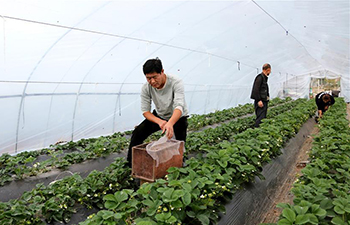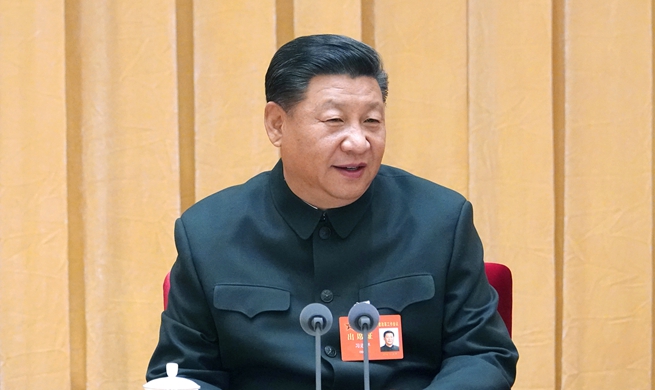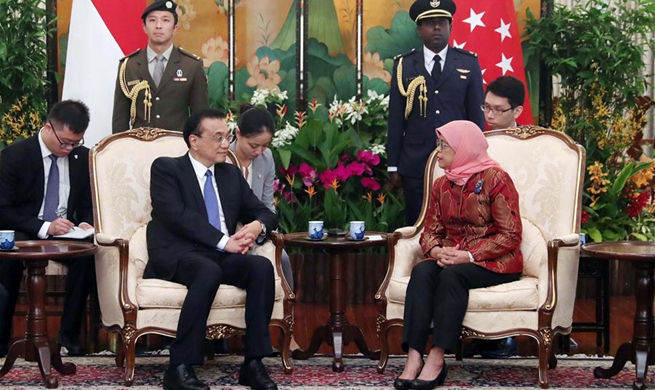by Eric J. Lyman
ROME, Nov. 14 (Xinhua) -- For many, the Italian government's new emphasis on increasing the country's population conjures up memories from the country's troubled past.
Earlier this year, United Nations' statistics indicated Italy's population had peaked at 59.3 million, and was in decline. Due in part to the government's policies of blocking the arrival of would-be asylum seekers from developing countries, the net number of migrants arriving in Italy each day dipped below 150. That level is inadequate to compensate for the gap between the average death rate of around 1,700 each day and the average daily birth rate of around 1,300.
A declining population impacts a country's economic growth and innovation while shrinking its tax base and increasing public pension and health care costs.
The government headed by Prime Minister Giuseppe Conte is taking steps to reverse the trend.
Earlier this month, the government unveiled a plan that would encourage families to have more children. The proposal would lend state-held agricultural land to families for 20 years if they have a third child before 2021. The plan would also allow them to borrow up to 200,000 euros (225,000 U.S. dollars) interest free to buy or build a home near the property.
"I think the government is trying to accomplish two things with one law: help the population problem and also develop what would otherwise be undeveloped, marginal land," Alessandro Polli, an economist at Rome's La Sapienza University, told Xinhua.
The measure was unveiled as a part of the country's budget draft plan for 2019. That plan is still being negotiated, and the birthrate measure could still change or be eliminated. But officials have said the goal of helping stabilize Italy's population without over-relying on immigration will remain a priority.
Gian Marco Centinaio, Italy's minister of agriculture, said in a televised interview that his ministry wants to help address the problem of a dropping population by "specifically favoring rural areas, where families still have a lot of children."
For historians, however, the goal of trying to politically engineer population growth recalls the "Battle for Births," a controversial policy in place in Italy for a 15-year period starting in 1927. The goal was to increase Italy's population by 50 percent in 25 years by offering couples loans that could be paid off by having children, giving preferential treatment to fertile couples seeking jobs in the civil service, and granting complete tax exemptions for married men who fathered six or more children. Statistics show the policy had little impact.
That history tinges the new plan by linking it to policies first implemented in Italy by Benito Mussolini, the strong-armed Italian prime minister from 1922 to 1943 and creator of the original "Battle for Births" strategy.
"Until the 1990s, speaking about birth rate was a taboo topic in Italy because it reminded everyone of Mussolini," Maria Silvana Salvini, a professor of demographics at the University of Florence, said in an interview.
Alessandro Marzo Magno, a historian and author, said big families are part of Italy's traditional image.
"The big family sitting around the dinner table has become part of the cliche of Italy," Marzo Magno told Xinhua. "But that old-fashioned Italy doesn't exist any longer."
Polli, Salvini, and Marzo Magno agreed the Conte government's plan to increase the country's birthrate was unlikely to have much of an impact.
"I could see a policy like this having some small impact in the southern part of the country," Polli said. "But if the government wants to make an impact they should make it less costly for families to have more children by adjusting tax policy or making parental leave rules more generous. This is not the way to start."













